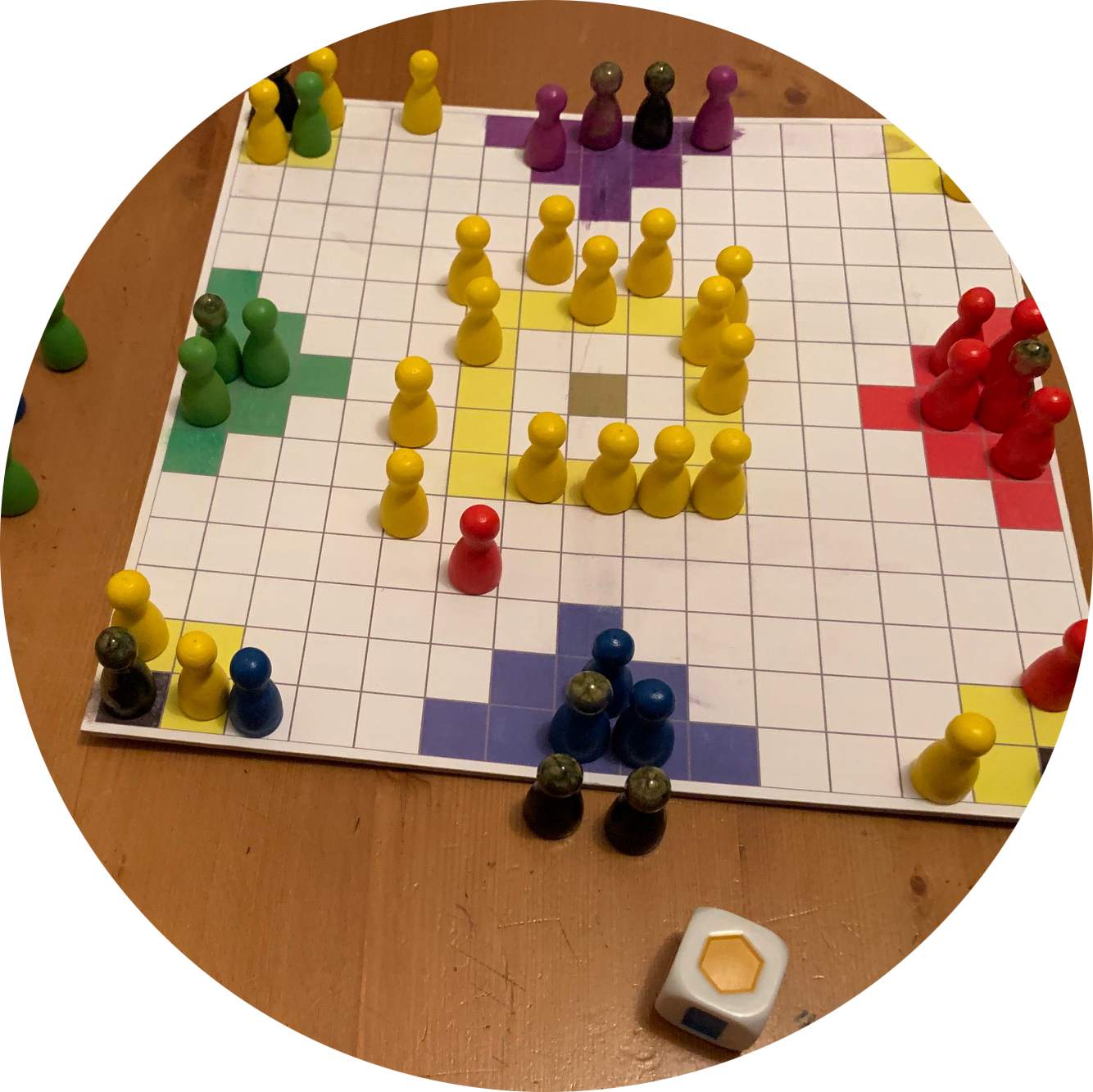Jb Games - Exploring Meanings And Digital Play
When people talk about "jb games," it can feel a bit like trying to solve a puzzle with pieces that don't quite fit together at first glance. This is because the letters "JB" show up in so many different places, each with its own special meaning. Sometimes, it's about tech tools that help build things, other times it's about how people talk online, and even, you know, about numbers and tests. It's almost like a series of mini-challenges, each one revealing a new side to this simple pair of letters.
You see, in our connected world, words and abbreviations often take on lives of their own, shifting their sense depending on where you hear them. What might mean one thing in a casual chat could mean something entirely different in a serious technical discussion. It's a bit like playing a word association game, where the context changes all the rules. So, when someone mentions "jb games," it really makes you wonder which particular "JB" they have in mind, doesn't it?
This exploration will take us through the varied ways "JB" appears in conversations, whether those are about the tools that shape our digital experiences or the ways we make sense of data. We'll look at how these different uses of "JB" might, in a way, connect to the idea of "games" – not always in the sense of something you play on a screen, but perhaps as the challenges, systems, or interactions that make up our digital lives. Basically, we're going to unpack what "JB" means in its many forms and see how it all fits together, or doesn't, in the bigger picture of what "jb games" could imply.
Table of Contents
- What's the Real Score with "JB"?
- Are "JB" Standards a Kind of Game?
- How Does "JB" Pop Up in Online Talk?
- Can Statistics Play a Part in "JB Games"?
- Beyond "JB" – The Wider Digital Playground
What's the Real Score with "JB"?
When you hear "JB," your mind might go in a few different directions, and that's perfectly fine, you know? It's like a word that has many different outfits, depending on the occasion. One minute it's part of some casual chat, the next it's a serious name in the world of computer tools. It really highlights how language can be a bit of a puzzle itself, with different pieces fitting into different pictures. So, let's just consider some of the ways this pair of letters shows up, and how each might, in its own way, be part of what we think of as "jb games" – or at least the systems that support them.
"JB" in Everyday Chat and Digital Spaces
Sometimes, "JB" is just a shorthand, a bit of internet slang. For example, in some online communities, "JB" can be a quick way to say something like "jiba," which is a pretty common informal expression. It's a bit like how people use abbreviations or shortened words when they're typing quickly or just having a laugh. This use of "JB" shows how language itself is constantly playing a sort of game, changing and adapting to how people communicate, especially in fast-paced digital environments. It really shows how our online conversations are full of these little linguistic twists and turns.
Then there's another instance where "JB" became popular as a sort of stand-in for "what?" This came about after a well-known singer responded to a question with a drawn-out "Whhhhat?" and seemed to avoid giving a direct answer. People started using "JB" to poke fun at that kind of roundabout talk, and over time, it just became a general way to express surprise or confusion. It’s almost like a playful jab in conversation, a sort of mini-game of wit. This kind of linguistic evolution is, you know, pretty fascinating, and it plays a role in how people express themselves, perhaps even within the worlds of "jb games" where quick, coded communication is common.
The Tech Side of "JB" – JetBrains
Moving away from casual talk, "JB" also brings to mind JetBrains, a company that makes tools for people who write computer programs. These tools are like the essential gear for building software, including, in some respects, the very foundations for what might become "jb games." They help creators put together complex digital creations. It's pretty cool how one simple abbreviation can have such different meanings, isn't it? This particular "JB" is about the serious business of making things work behind the scenes.
The products from the folks at JetBrains, like IntelliJ IDEA, actually share a lot of their core programming. They're basically different versions of the same fundamental software, just dressed up a little differently for various programming tasks. It's sort of like having a really good set of building blocks, and then you can put them together in many ways to build different structures. This approach makes it easier for them to offer licenses for different uses, and it also means that the same reliable base is there for all their tools. So, if you're thinking about creating "jb games," these tools are, in a way, the very ground you stand on for making those digital experiences come to life.
Are "JB" Standards a Kind of Game?
When you get into the world of industry, "JB" can also refer to a type of standard. Think about it like a set of rules that everyone agrees to follow so things work smoothly and safely. This isn't about fun and games in the usual sense, but it does involve a kind of structure, a set of guidelines that people have to play by. It's pretty much a serious framework that ensures quality and consistency. So, in a way, you could say that adhering to these standards is a kind of game in itself, where the goal is to meet specific requirements and make sure everything is just right. It's about precision and following the playbook, which is, you know, a different kind of challenge.
When Rules Shape the "jb games" Field
For example, if a client is involved with the electricity industry, they'll typically require that all products and engineering work meet specific DL standards. This is about making sure everything is safe and performs as it should. The same goes for "JB" in this context; it can be another one of those industry-specific rule sets. If the client isn't clear about what they need, things can get a little tricky, perhaps even sent back for adjustments. It’s almost like a professional "jb games" scenario, where you have to understand and follow the specific rules of the field to succeed. These rules really define the boundaries and expectations, much like how the rules of any sport define how it's played. It's a very practical side of how things get done, ensuring that what's built is reliable and up to par.
How Does "JB" Pop Up in Online Talk?
The way words catch on and change their meaning online is pretty interesting, isn't it? Sometimes, a simple abbreviation or a phrase can suddenly become a widely used expression, almost like a trend or a meme. "JB" is one of those words that gained popularity in a rather specific way, becoming a stand-in for something else entirely. It's a bit like a secret handshake in online conversations, where if you know the origin, you get the deeper meaning. This spread of language, you know, really shows how communities play with words, and it can even influence the way people talk within "jb games" communities or online spaces where players interact.
The "JB" of Online Discussions and Review Challenges
As a matter of fact, "JB" became quite popular as a way to jokingly criticize someone for sidestepping an important question or for being a bit evasive. This started when a singer, when asked a particular question, simply replied with a drawn-out "Whhhhat?" and seemed to avoid addressing the core issue. From that point on, people began using "JB" to playfully mock that kind of dodging behavior. It was a kind of inside joke, a way to signal that someone was being a bit tricky. Later on, though, "JB" kind of softened its meaning online and just became a general substitute for "what?" or "huh?" This shows how language can change its role, almost like a character in a story evolving over time. It’s a very common thing in online communication, and it’s something you might even see influencing the slang and expressions used within "jb games" communities.
Then there's the phrase "xia jb gaige" (瞎jb改革), which literally means "blind JB reform." This expression often pops up when people are frustrated with changes that seem poorly thought out or just plain silly. For instance, someone might use it to complain about how academic review processes, like those for ICML, have become overly complicated with lots of unnecessary steps. It’s like being forced to jump through too many hoops for no good reason. People feel that these kinds of changes just make things harder and don't actually improve quality, almost like a poorly designed "jb games" level that just frustrates players. It's a way of expressing exasperation with systems that feel like they're just wasting everyone's time and effort, and it really highlights the challenges people face in structured, often bureaucratic, environments.
Can Statistics Play a Part in "JB Games"?
It might seem a bit unexpected, but "JB" also has a place in the world of numbers and data analysis. This is where things get a little more technical, but it’s still about understanding patterns and making sense of information. Think of it like a detective trying to figure out if something is behaving as it should. This particular "JB" is about a statistical test, a tool that helps researchers and analysts check if their data looks a certain way. It’s pretty much a methodical way to examine information, and that kind of analysis can be super useful in many fields, even, in a way, when looking at the performance of "jb games" or player behavior.
Analyzing the Numbers Behind the "jb games" Experience
The Jarque-Bera test, often just called the JB test, is a statistical procedure used to see if a set of data follows a normal distribution. In simpler terms, it helps determine if the numbers are spread out in a bell-curve shape, which is a common assumption in many statistical methods. When the "p-value" from this test is less than 0.05, it generally means that the data probably doesn't fit that normal bell-curve pattern, so you'd reject the idea that it's normally distributed. This is a pretty important step in data analysis, as it helps researchers choose the right tools to interpret their findings. For example, if you were looking at how players interact with "jb games," or perhaps their scores, you might use this test to see if the data behaves in a predictable way. It’s a bit like checking the rules of the game before you start playing, making sure your assumptions about the data are sound. This kind of numerical scrutiny is, you know, a vital part of understanding complex systems, even those that involve digital play.
Beyond "JB" – The Wider Digital Playground
While we've spent some time looking at the various meanings of "JB," it's also worth noting that other pairs of letters have their own unique interpretations in the digital space. It's like a whole alphabet soup of acronyms and abbreviations, each one holding a specific piece of information. These different initialisms often pop up in different contexts, from casual chat to serious professional discussions, showing just how rich and varied our online language can be. It’s pretty much a constant stream of new terms and shorthand, and it really makes you think about how we communicate in this ever-expanding digital world.
What About JS and JD in the "jb games" Context?
For instance, "JS" can refer to "joshi shogakusei" (女子小学生), which is a Japanese term for a female elementary school student. But in the world of technology, "JS" almost always means JavaScript. This is a very widely used programming language that helps make websites interactive and dynamic. It's the language that brings web pages to life, allowing for animations, complex forms, and, you know, many of the interactive elements that make up web-based "jb games." Similarly, "JD" can mean "joshi daigakusei" (女子大学生), referring to a female university student. However, in the business world, "JD" often points to Jingdong, which is a major e-commerce company. These examples just highlight how important it is to consider the context when you encounter abbreviations, as their meaning can shift dramatically. It's like a linguistic "jb games" challenge, where you have to guess the right meaning based on the clues around it.
Zhihu – A Place for Shared Knowledge on "jb games" and More
Speaking of understanding different terms and finding answers, platforms like Zhihu play a really important role. Zhihu, which started back in January 2011, is a
- Kate Werble Gallery
- 9th Circuit Court Ruling On Pardons
- Asmr Gone Wild
- Ella Graves Onlyfans
- Evil Mlk Be Like

JB Logo - LogoDix

Spelmakers - JB Games Spelmakers

Spelmakers - JB Games Spelmakers